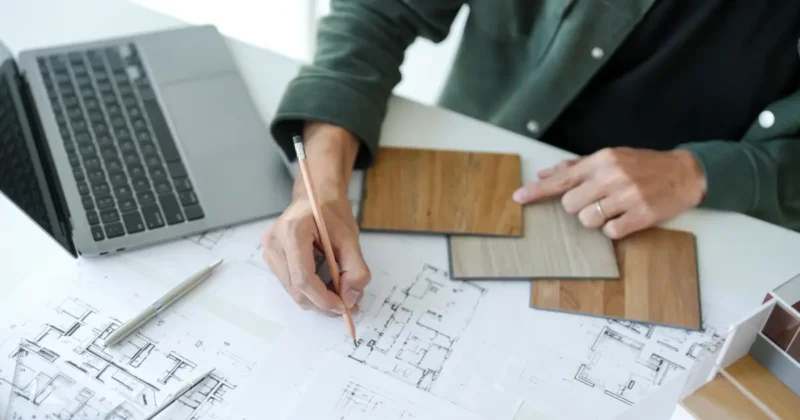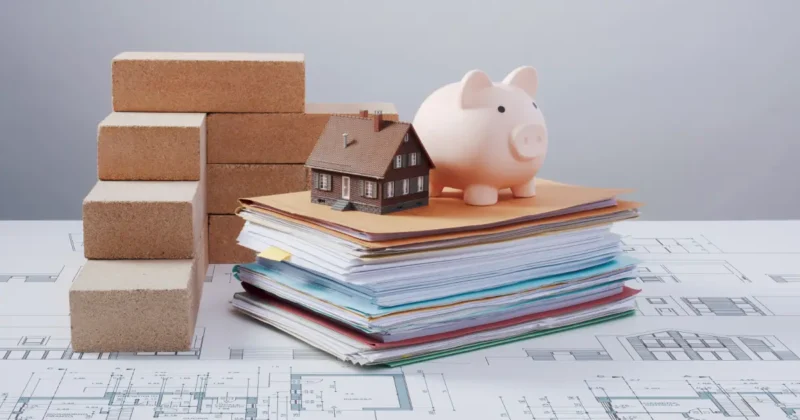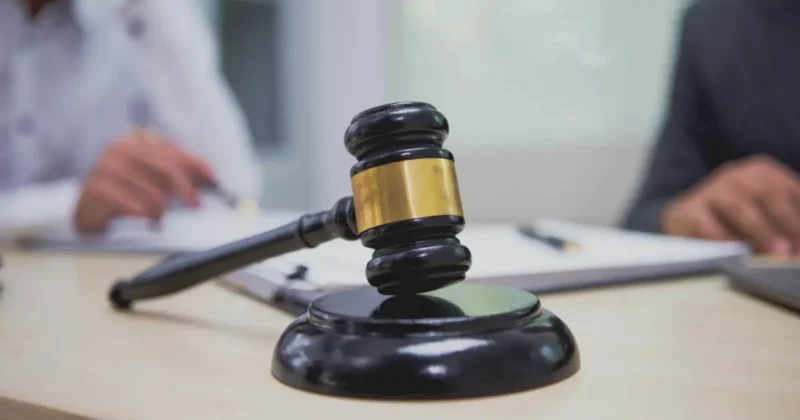Renovations are the simplest way to breathe life into an old apartment or villa. However, before you begin the demolition process, it is essential to familiarise yourself with the Dubai building code.
Dubai takes building safety very seriously. Permits are a way to protect the residents, neighbours and the structure itself.
- Understanding Home Renovation Permits in Dubai
- Step-by-Step Permit Process
- Permit Types and Associated Documents
- Fees and Legal Considerations
- Inspection and Final Approval
- Tips for a smooth permitting process
- Key Takeaways
- FAQs
Understanding Home Renovation Permits in Dubai
Construction is regulated independently by each emirate. Within Dubai, authorities issue numerous permits on a monthly basis. This depicts a steady pace of development. Your required permits will depend on the property type and location. Additionally, the scope of work will determine the license you need.

Who Issues a Renovation Permit?
- Dubai Municipality (DM) is the leading authority issuing permits for most residential renovations outside free zone jurisdictions.
- Other regulators are the Dubai Development Authority (DDA) and Trakhees (for areas such as Palm Jumeirah, JAFZA, and certain master developments)
- The Owners Association (OA) or Building Management needs to be involved. Expect a parallel consent from your community or tower, most of which require refundable deposits.
Approvals happen on both sides. You need one from the government regulator and the other from the building management. Sometimes, the master developer may be required to obtain the Dubai municipality building code.
Work Requiring Permits
People believe that only major construction work must pass through the Dubai municipality building codes. However, multiple renovation tasks need a permit. These include:
- Structural modifications, such as adding or removing partition walls
- Plumbing changes or bathroom reconfiguration (new layouts, relocations and stack connections)
- Built-in installations like fitted kitchens or wardrobes that tie into services
- Electrical upgrades and air-conditioning alterations, including ducting and load adjustments
- New flooring, especially in spaces where waterproofing or impact sound is a concern
- Fire and life safety impacts (sprinklers, detectors, egress routes and compartmentation)
- Substantial layout or finish changes outside cosmetic refreshes
If your scope involves MEP (mechanical, electrical, and plumbing), expect a licensed engineering consultant to prepare and stamp the drawings and submit them on your behalf.
Works That Usually Do Not Require Permits
Some home renovation tasks in Dubai do not need a permit. These include:
- Repainting interior walls
- Swapping loose furniture
- Conducting light cosmetic tweaks (but always confirm with your OA and management)
When in doubt, ask. Writing a simple five-minute email to the management is always better than getting a stop-work order.
Step-by-Step Permit Process
Check Developer Building Rules
Every community has its own playbook, including quiet hours, lift protection, loading docks, waste handling, and allowed scope.
Secure a No Objection Certificate (NOC) from the OA or the developer before you lodge anything with the government regulator.
Hire Licensed Professionals
- Work with DM-registered and licensed contractors or consultants
- Accelerate approvals by working with teams who submit architectural drawings, documents and permit applications regularly and understand the portals, drawing conventions and review comments
Prepare and Submit Plans
- Produce architectural and engineering drawings with MEP details (loads, routes, equipment schedules and sanitary risers)
- Get these drawings stamped by a Dubai-licensed engineer. Include method statements and material specifications where required.
Submit to The Authority
- File via the correct regulator—DM, DDA, or Trakhees—depending on the property’s jurisdiction
- Check with your consultant if some scopes require extra checks (e.g., fire safety)
Obtain NOC from OA/Building Management
- Submit the same plans to building management
- Expect a refundable deposit (commonly 2,000–5,000 AED) to cover common-area protection and any potential damage.
Receive Renovation Permit
The permit specifies the approved scope, contractor, validity period and conditions (like work hours, noise rules and protection requirements).
Compliance and Inspections
- Respect Dubai building codes, fire rules and environmental standards
- Be prepared for interim checks that the authorities may schedule, along with a final inspection, before you can close the case
Typical Timelines
- OA/developer NOC: Seven–14 days (varies by community).
- Authority review after submission: 10–15 working days for simple projects.
- Final inspections and closure: Five–10 working days after completion.
These are indicative timelines. However, the project complexity and reviewer workload can lengthen the process.
Permit Types and Associated Documents
Main Permits
- Building Permit: The core approval for structural works and substantive interior changes.
- No Objection Certificate (NOC): Issued by the OA/developer/building management, enabling you to proceed within the community rules.
- Mobilisation/Enabling Permit: Sometimes used to start early site preparations (protection, temporary barriers) while the full permit is under review or being finalised.
For apartment refurbishments involving utilities or cores, expect more documentation. In villas, external works or façade adjustments often demand additional checks.
Key Documents Required

- Building permit application
- Signed appointment letters from the owner, consultant and contractor confirming project roles.
- Stamped architectural or engineering drawings, comprising structural plans, plumbing or electrical changes
- Trade licenses for contractors and consultants
- Site plan or location map and supporting technical data (load calculations, equipment cut sheets)
- Owner identification (Emirates ID or passport) and property title, as requested
Keep both digital and hard-copy sets neatly organised. It speeds up the process on the day of inspection.
Fees and Legal Considerations

- Permit fees scale with scope. As a rough orientation, basic permits can start around 200 AED or 1.00 AED per square foot, with additional requirements for more complex submissions.
- Building management deposits typically cost 2,000–5,000 AED for apartments and villas (refundable if common areas remain undamaged).
- Special approvals carry added costs—fire safety modifications, external elevation changes or utility impacts.
- Non-compliance is expensive. Working outside permitted hours or starting without approvals can result in fines, stop-work orders, and forced reinstatement.
Permit Costs in Dubai (2025 estimates)
Knowing permit costs can help with budgeting. The price below excludes consultant and contractor service fees for drafting, submission and coordination.
- Apartment – interior only: 1,500–2,500 AED
- Apartment – with MEP changes: 2,500–4,000 AED
- Villa – minor scope: 3,000–6,000 AED
- Complete villa renovation: 7,000–12,000 AED
Actual totals depend on authority, drawing complexity, fire review and the number of revisions reviewers request.
Inspection and Final Approval
- Authority inspections may occur during the mid-project phase and at completion, verifying that the site matches the approved drawings and codes.
- Projects with structural or utility modifications usually require a final sign-off to close the file.
- Building Completion Certificate (BCC) is needed for broader works after the last inspection has cleared.
Pro tip: Book inspections early. Align dates with contractor milestones. So, you’re not holding up trades or prolonging temporary protections in common areas.
Tips for a smooth permitting process
- Choose seasoned team: Consultants who submit weekly know what reviewers flag and how to pre-empt comments.
- Start paperwork early: Waiting until demolition week to chase an OA NOC is a classic delay.
- Document everything: Keep approvals, stamped drawings and correspondence in one shared folder accessible to the site and management.
- Respect the rules: Do not mobilise until permits are issued. Avoid weekend work or noisy activity outside approved hours.
- Plan for deposits and lift bookings: Reserve the service elevator and loading bay, and protect floors and walls before deliveries.
- Double-check MEP loads: Apartment stacks, risers and AC capacity have limits. So, get this right in design, not on a live site.
- Mind fire safety: Even a wardrobe can affect detector spacing or sprinkler throw. So, coordinate with your fire consultant.
- Communicate with neighbours: Courtesy notices reduce complaints and ensure management stays on your side.
Key Takeaways
In Dubai, permits are required for any structural works or significant interior changes to homes. Typically, this involves a two-layer approval process, with both a government regulator and the OA or developer’s management team reviewing the plans. Licensed professionals help simplify the process by handling design, submissions, and inspections. Following compliance guidelines not only protects you but also safeguards the property itself. While cosmetic updates such as painting or adding loose furniture are usually exempt, it’s always best to confirm with your building management before proceeding.
FAQs
Yes. If you alter plumbing, electrical wiring, ventilation, or the layout, you will need authority approval and usually an OA NOC.
Yes. The contractor can handle the permits, provided they are licensed and registered in Dubai. Most reputable renovation companies prepare drawings and submit them on your behalf.
If you start without permits, the authorities can:
1. Stop work
2. impose fines
3. require reinstatement
Insurance claims may also be affected by non-compliant works.
Simple scopes can be cleared in about a week after submission. However, larger projects may take several weeks, depending on complexity and reviewer queues.
Often, yes. Many master developments enforce additional community rules and require a developer/OA NOC before municipal submission.
If your renovation affects power or water services, expect related clearances to be obtained alongside your main permit and OA approvals.
In apartments, yes. Authorities and OAs care about acoustic performance and waterproofing. Some buildings specify approved systems and underlays.
It depends on specific community rules. Most towers limit noisy work to weekdays and particular hours. To know, check your OA conditions.
You get the BCC after the final inspection confirms that the completed work matches the approved drawings and complies with applicable codes.
Permits may not be the glamorous part of a remodel. However, they’re the guardrails that keep projects safe, insurable, and sale-ready. With the correct drawings, a competent team and a little patience, approvals become a manageable checklist rather than a headache.
Please note that regulations, fees, and processing times are subject to change. The figures and steps here are general guidance for homeowners and investors as of 2025. Always confirm requirements with your building management and the relevant authority before starting work.